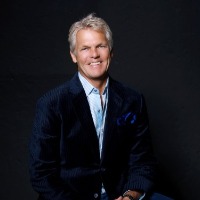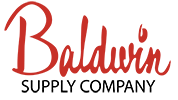You Can't Learn Something You Already Think You Know- Dave LaRue

One of my long-time coaching clients shared one of his favorite quotes with me. The quote is from the Greek Stoic philosopher Epictetus, who lived over two thousand years ago:
“It is not possible to learn what you think you already know.”
Knowing we don’t “already know” is wise because it acknowledges that what we “already know” has an expiration date. Everything is constantly changing, including people. To succeed in life, we must commit to a difficult task and then perform a balancing act. First we must spur our minds to be active when they would rather not be. Then we must balance the awareness of constant change with the need for the day-to-day facts we use to make the predictions and plans our lives and businesses require.
There is so much wisdom in this quote, but here I will focus on a few ways it applies personally and professionally, in relationships as well as within yourself. First, let’s think about how it applies to relationships.
Those you know best
Think of a relationship in your life. How do you treat this person when you think they are going through a crisis or change? How do you listen? What do you ask? People can feel unimportant and taken for granted when you act as though you “already know” who they are and miss the mark. All too often, you are seeing them as they were when you last paid them sincere attention, not as they are now.
Relationships with our partners or spouses, children, and friends all improve when we keep in mind that, although we have heard the story of their life, we don’t necessarily “already know” who they are today. This goes for all relationships in our life. We can enjoy the history we share with others and take comfort in the dependability of our connection with them, but we can also look for and make provision for how they are changing and growing.
Likability and teams
We are also much morelikable when we know the limits of our understanding, value other perspectives, and engage with sincere interest and attention. Think about the difference between someone who believes your perspective has value versus someone who has no interest in it. Think of someone who really thinks they “already know” everything versus someone who appreciates learning from and about others and enlarging their perspective. Who is more likable and easy to work with?
This is also a huge issue in business. Any management consultant will tell you that the complexity of business today requires consulting with others and gathering diverse perspectives more than ever. Without learning this lesson, teams cannot innovate, managers are not operating at their full potential, and executives cannot make good strategic decisions.
We are complete because we can change
Neuroscientists now know in great detail that the brain goes to great lengths to save energy, and that this profoundly influences how we think. “Already knowing” is when the brain has decided to go on autopilot to save energy. Epictetus is calling on us to be vigilant and build habits to compensate for this hardwired natural tendency to stop learning and resist changing the way we see things. Because this is so important, two of the the core principles I teach are related to this: “Stay coachable” and “Always be learning and growing.”
“Stay coachable” means you value and regularly seek good outside feedback. Being coachable means growing beyond the small, subjective world that is possible for one person to understand and graduating into the real world, which is so complex that it takes many perspectives to understand.
“Always be learning and growing” means paying attention and taking in more depth and breadth and richness of the world so you can appreciate it and make sense of its changes as you cultivate and manage changes in yourself.
Seeing knowledge and ability as something we collect to complete ourselves makes it hard to admit we don’t know or can’t do something. We feel vulnerable admitting our limits. But we can grow to see that each of us is complete. In addition to whatever skills and knowledge we have, we also possess all the capability we will ever need to create change, connect with others, and learn more. It’s not our job to know everything. It’s not even possible. What is possible is to learn and grow, and get outside feedback to help do just that.
What you get for giving it up
Making peace and learning to work with with not knowing everything has been behind many of the biggest breakthroughs I have seen in my coaching clients and myself: Learning to reach out for the knowledge, perspective or capability you need. Spending less time defending old positions and more time learning about what has changed. Allowing relationships to change. Assessing mistakes and failures objectively and responding to them quickly because you aren’t trying to project false mastery. Tracing root causes of issues with no fear of what the truth will show. Giving up “already knowing” means trading a false sense of security for embracing the true, changing nature of the world and everything—and everyone—in it. We can then use our energy to notice, appreciate, navigate, and influence the changes in play. This is a brave leap that’s well worth taking. It opens up a thousand times more opportunities and experiences.
So open your spirit to the joy of knowing you don’t know everything. I promise it will open up so many more wonderful relationships, experiences, and opportunities for you—and more knowledge and capability, too.
Cheers and thanks a billion for being in my life!
Dave









